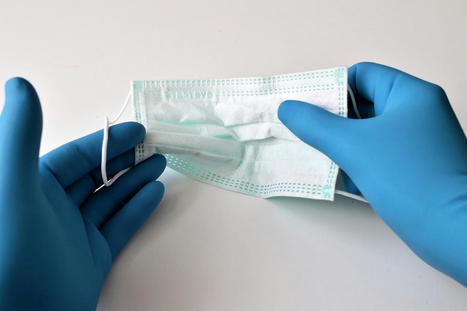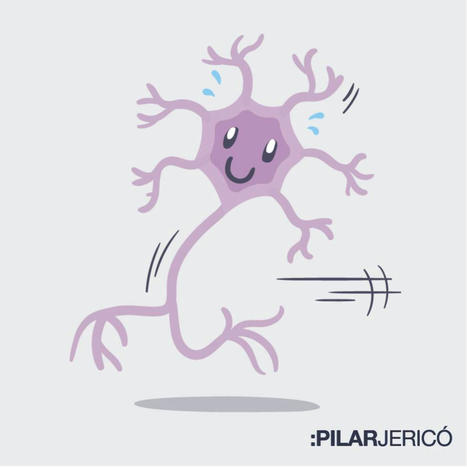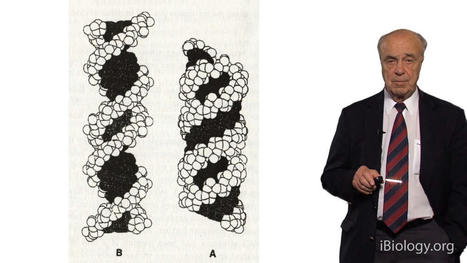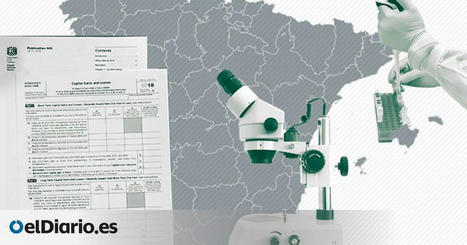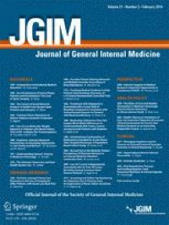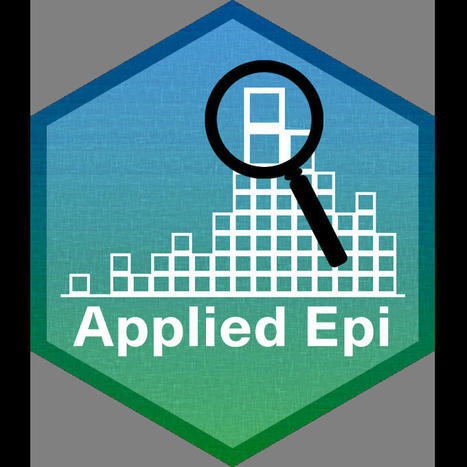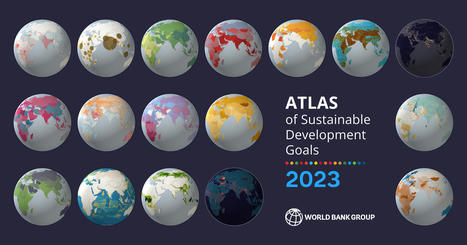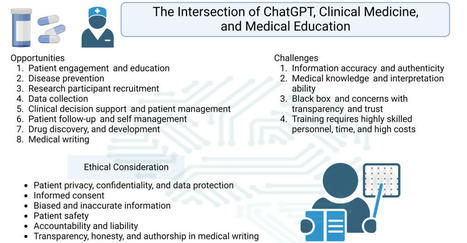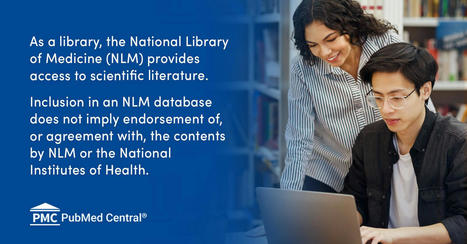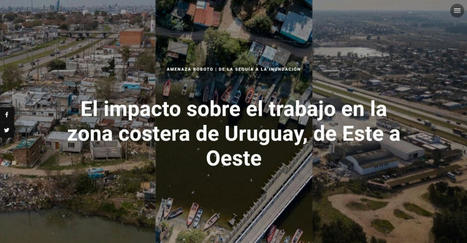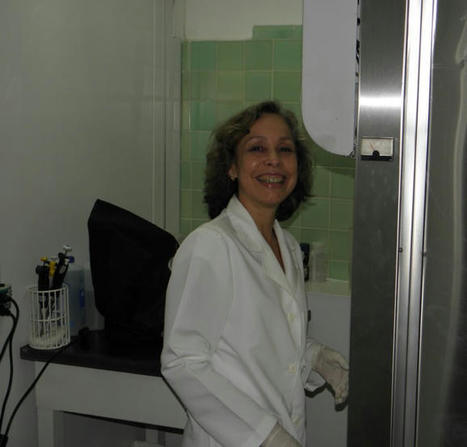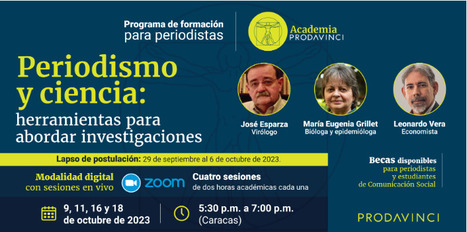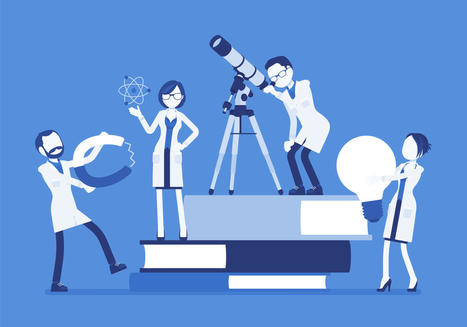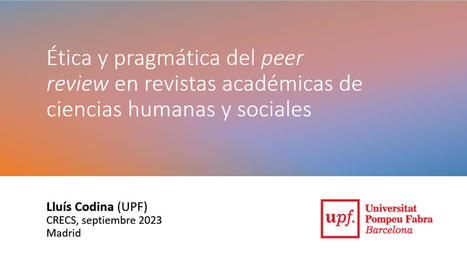 Your new post is loading...
 Your new post is loading...

|
Scooped by
Mariano Fernandez S.
March 16, 2024 11:59 AM
|

|
Scooped by
Mariano Fernandez S.
December 2, 2023 10:17 AM
|
Además de difundir el conocimiento, las revistas científicas universitarias acreditan la solvencia y asientan el prestigio de la institución que las publica.

|
Scooped by
Mariano Fernandez S.
November 25, 2023 6:55 AM
|
El libro Lecciones de pandemia COVID-19: un capítulo en la historia del siglo XXI (ACFIMAN, 2023) está disponible en Internet

|
Scooped by
Mariano Fernandez S.
November 19, 2023 7:27 PM
|
Ponte las zapatillas de deporte, tu cerebro lo agradecerá. Somos capaces de crear nuevas neuronas, incluso de adultos. Este hallazgo es relativamente nuevo, porque se pensaba que se nacía con un determinado “banco de neuronas” que iba menguando con el paso del tiempo, pero que no era posible renovar ni ampliar. Sin embargo, los últimos […]

|
Scooped by
Mariano Fernandez S.
November 19, 2023 6:01 AM
|
Erling Norrby takes us through the history of the discovery of DNA structure from the 1940s to 1962, when the Nobel Prize in Physiology or Medicine was awarded to Watson, Crick, and Wilkins.

|
Scooped by
Mariano Fernandez S.
November 9, 2023 5:00 AM
|
La Aneca 'reabre' la ciencia y propone que también se puedan acreditar sexenios de investigación con méritos como patentes, informes, dictámenes, trabajos técnicos o artísticos, exposiciones, catalogaciones o conjuntos de datos, excavaciones arqueológicas o metodologías

|
Scooped by
Mariano Fernandez S.
October 31, 2023 4:56 AM
|
Despite the health crisis that Venezuela has gone through, the onchocerciasis elimination program in Venezuela has continued to work reasonably well. One of its leading scientists explains why

|
Scooped by
Mariano Fernandez S.
October 29, 2023 5:14 PM
|
Se han encontrado microplásticos en la sangre de personas y los científicos estudian qué consecuencias tienen para nuestra salud y la del medio ambiente

|
Scooped by
Mariano Fernandez S.
October 10, 2023 4:09 PM
|
Easy access to evidence-based information on COVID-19 within an infodemic has been a challenging task. Chatbots have been introduced in times of emergency, when human resources are stretched thin and individuals need a user-centered resource. The World Health Organization Regional Office for Europe and UNICEF (United Nations Children's Fund) Europe and Central Asia came together to build a chatbot, HealthBuddy+, to assist country populations in the region to access accurate COVID-19 information in the local languages, adapted to the country context. Working in close collaboration with thematic technical experts, colleagues and counterparts at the country level allowed the project to be tailored to a diverse range of subtopics. To ensure that HealthBuddy+ was relevant and useful in countries across the region, the 2 regional offices worked closely with their counterparts in country offices, which were essential in partnering with national authorities, engaging communities, promoting the tool, and identifying the most relevant communication channels in which to embed HealthBuddy+. Over the past 2 years, the project has expanded from a web-based chatbot in 7 languages to a multistream, multifunction chatbot available in 16 regional languages, and HealthBuddy+ continues to expand and adjust to meet emerging health emergency needs.

|
Scooped by
Mariano Fernandez S.
September 29, 2023 5:31 AM
|

|
Scooped by
Mariano Fernandez S.
September 19, 2023 8:15 PM
|
El concepto de Salud Global implica conectar la salud humana, animal y medioambiental para combatir la expansión de las infecciones y el preocupante aumento de las bacterias resistentes a los antibióticos.

|
Scooped by
Mariano Fernandez S.
September 18, 2023 1:25 PM
|
Medical journal publishing has changed dramatically over the past decade. The shift from print to electronic distribution altered the industry’s economic model. This was followed by open access mandates from funding organizations and the subsequent imposition of article processing charges on authors. The medical publishing industry is large and while there is variation across journals, it is overall highly profitable. As journals have moved to digital dissemination, advertising revenues decreased and publishers shifted some of the losses onto authors by way of article processing charges. The number of open access journals has increased substantially in recent years. The open access model presents an equity paradox; while it liberates scientific knowledge for the consumer, it presents barriers to those who produce research. This emerging “pay-to-publish” system offers advantages to authors who work in countries and at institutes with more resources. Finally, the medical publishing industry represents an unusual business model; the people who provide both the content and the external peer review receive no payment from the publisher, who generates revenue from the content. The very unusual economic model of this industry makes it vulnerable to disruptive change. The economic model of medical publishing is rapidly evolving and this will lead to disruption of the industry. These changes will accelerate dissemination of science and may lead to a shift away from lower-impact journals towards pre-print servers.

|
Scooped by
Mariano Fernandez S.
September 15, 2023 8:42 AM
|
Covid infections are putting people at higher risk of diabetes, strokes, heart disease and other long-term illnesses - but experts warn it may be decades before the full impact is known.
|

|
Scooped by
Mariano Fernandez S.
March 4, 2024 9:02 AM
|
EpiRhandbook es un manual de referencia de R aplicado a la epidemiología y la salud pública.

|
Scooped by
Mariano Fernandez S.
December 1, 2023 5:02 PM
|
En el Atlas de los Objetivos de Desarrollo Sostenible 2023 se presentan narraciones interactivas y visualizaciones de datos relacionadas con los 17 Objetivos de Desarrollo Sostenible (ODS). Asimismo, se describen las tendencias correspondientes a algunas metas de cada objetivo y se incorpora información conceptual sobre cómo se miden algunos de los ODS.

|
Scooped by
Mariano Fernandez S.
November 22, 2023 4:06 AM
|
As we progress deeper into the digital age, the robust development and application of advanced artificial intelligence (AI) technology, specifically generative language models like ChatGPT (OpenAI), have potential implications in all sectors including medicine. This viewpoint article aims to present the authors’ perspective on the integration of AI models such as ChatGPT in clinical medicine and medical education. The unprecedented capacity of ChatGPT to generate human-like responses, refined through Reinforcement Learning with Human Feedback, could significantly reshape the pedagogical methodologies within medical education. Through a comprehensive review and the authors’ personal experiences, this viewpoint article elucidates the pros, cons, and ethical considerations of using ChatGPT within clinical medicine and notably, its implications for medical education. This exploration is crucial in a transformative era where AI could potentially augment human capability in the process of knowledge creation and dissemination, potentially revolutionizing medical education and clinical practice. The importance of maintaining academic integrity and professional standards is highlighted. The relevance of establishing clear guidelines for the responsible and ethical use of AI technologies in clinical medicine and medical education is also emphasized.

|
Scooped by
Mariano Fernandez S.
November 19, 2023 6:01 AM
|
A shift in the traditional technocentric view of medical device design to a human-centered one is needed to bridge existing translational gaps and improve health equity. To ensure the successful and equitable adoption of health technology innovations

|
Scooped by
Mariano Fernandez S.
November 18, 2023 7:21 AM
|
“De la sequía a la inundación: El impacto sobre el trabajo en la zona costera de Uruguay, de Este a Oeste”, que aborda y explica estos temas, recibió el premio del Concurso de Visualización de Datos durante el Festival de Datos 2023, y es el trabajo periodístico más ambicioso que hemos realizado hasta ahora.

|
Scooped by
Mariano Fernandez S.
November 6, 2023 9:38 AM
|
La Dra Alicia Ponte-Sucre es la investigadora principal de este esfuerzo que reunirá más de 20 biografías de parasitólogas pioneras

|
Scooped by
Mariano Fernandez S.
October 30, 2023 1:01 PM
|
“La ciencia es más que un simple conjunto de conocimientos: es una manera de pensar”, dijo alguna vez el astrofísico Carl Sagan, probablemente el divulgador de ciencia más famoso y recordado del siglo XX. Con esta premisa de aprender a pensar para comprender, el Programa de formación para periodista

|
Scooped by
Mariano Fernandez S.
October 12, 2023 2:14 PM
|
The main diagnostic test for obesity — the body mass index — accounts for only height and weight, leaving out a slew of factors that influence body fat and health.

|
Scooped by
Mariano Fernandez S.
September 30, 2023 10:42 PM
|
La inteligencia artificial llegó para quedarse, por lo que hoy en día existen más herramientas de IA dedicadas a la investigación científica.

|
Scooped by
Mariano Fernandez S.
September 22, 2023 3:12 PM
|
The persistent and pervasive gender gap in health care is a fact backed by data, science, and evidence. This editorial aims to describe some of the challenges that continue to persist. Many of the strategies outlined can be implemented both locally and nationally to effect meaningful change and work toward closing the existing gender gap in health care.

|
Scooped by
Mariano Fernandez S.
September 19, 2023 8:26 AM
|
Caracterización del peer review en revistas académicas. Aspectos que inciden en un proceso de peer review más eficiente y ético..

|
Scooped by
Mariano Fernandez S.
September 15, 2023 3:26 PM
|
Background: The COVID-19 outbreak has revealed a high demand for timely surveillance of pandemic developments. Google Trends (GT), which provides freely available search volume data, has been proven to be a reliable forecast and nowcast measure for public health issues. Previous studies have tended to use relative search volumes from GT directly to analyze associations and predict the progression of pandemic. However, GT’s normalization of the search volumes data and data retrieval restrictions affect the data resolution in reflecting the actual search behaviors, thus limiting the potential for using GT data to predict disease outbreaks.
Objective: This study aimed to introduce a merged algorithm that helps recover the resolution and accuracy of the search volume data extracted from GT over long observation periods. In addition, this study also aimed to demonstrate the extended application of merged search volumes (MSVs) in combination of network analysis, via tracking the COVID-19 pandemic risk.
Methods: We collected relative search volumes from GT and transformed them into MSVs using our proposed merged algorithm. The MSVs of the selected coronavirus-related keywords were compiled using the rolling window method. The correlations between the MSVs were calculated to form a dynamic network. The network statistics, including network density and the global clustering coefficients between the MSVs, were also calculated.
Results: Our research findings suggested that although GT restricts the search data retrieval into weekly data points over a long period, our proposed approach could recover the daily search volume over the same investigation period to facilitate subsequent research analyses. In addition, the dynamic time warping diagrams show that the dynamic networks were capable of predicting the COVID-19 pandemic trends, in terms of the number of COVID-19 confirmed cases and severity risk scores.
Conclusions: The innovative method for handling GT search data and the application of MSVs and network analysis to broaden the potential for GT data are useful for predicting the pandemic risk. Further investigation of the GT dynamic network can focus on noncommunicable diseases, health-related behaviors, and misinformation on the internet.
|


 Your new post is loading...
Your new post is loading...
 Your new post is loading...
Your new post is loading...





